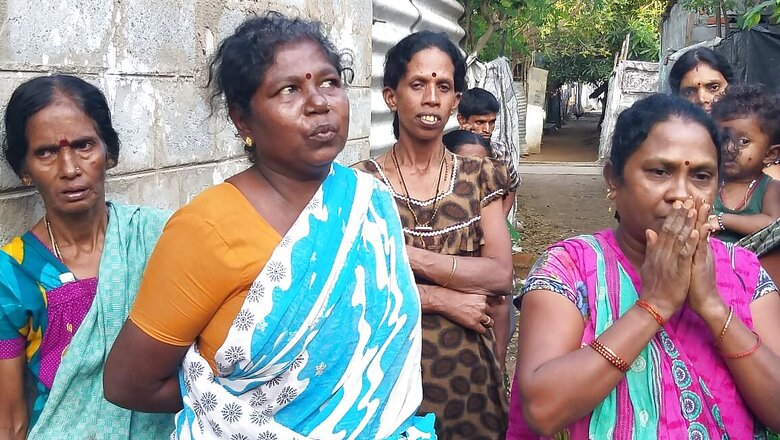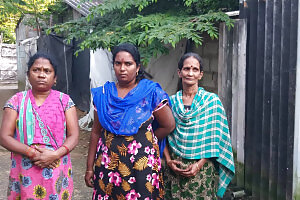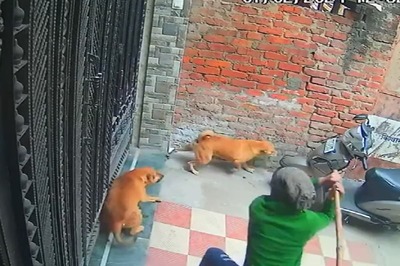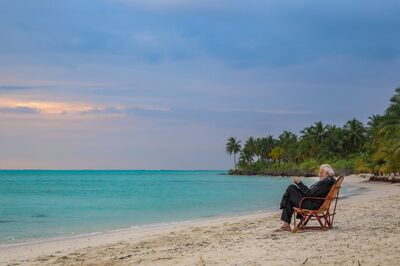
views
Chennai: Dharshini was only five when she found herself on a boat to Rameshwaram district in Tamil Nadu. Little did she know that her father was killed during the Sri Lankan war and that her mother had to hide in different places to find a way to escape from Sri Lanka during the night. This was in the year 1990. The glimpses of her mother, her four-year-old sister and her traveling in the boat are still fresh in Dharshini’s memory. The three of them stayed in Rameshwaram for a month and were sent to a relief camp near Puducherry.
Having stayed in India for over 29 years, Dharshini wants to become an Indian citizen. She told News18, “We don't have Indian citizenship. I came to India when I was five years old. My parents fled and became refugees. I'm a refugee and my children are also refugees. It's been 30 years since we came here and it will be good if we become Indian citizens. We can live here in the name of refugees. We can’t go back to Sri Lanka as we lost everything when we left Sri Lanka. We can't go back there.”
At the Gummidipundi refugee camp, about 50 km from Chennai, there are 3,000 refugees. Barring a handful who have been employed with private companies, most of these refugees are wage labourers. There is a refugee school located within the camp where more than 200 children study.
With the Lok Sabha passing the Citizenship Amendment Bill (CAB), these people are anxious and living in fear as they do not want to go back to Sri Lanka.
“We have been here since 1990. I wish to stay here. There is no safety if we return to Sri Lanka. Our children are studying here. We urge the central government to help us stay here and provide better job opportunities for our children,” said Vijayalakshmi, another refugee.

Many staying at the Gummidipundi refugee camp say they have nothing left in Sri Lanka and going back means they have to start their lives from scratch. The refugees here get a monthly amount from the state government. Women get Rs 1,000, men get Rs 750 and children get Rs 400. The children’s education at government schools, located near their camps, is also taken care of.
Their only worry is, if sent back to Sri Lanka, how will they begin a new life in a new land. They urge the government to give them Indian citizenship so their children get better job opportunities when they grow up.
“There are fewer job opportunities. We have been staying here for three generations. We are neither here nor there. My family goes for wage labour jobs. My son is a painter and my husband is a plumber. We hope to get permanent citizenship soon so that my children get government jobs or better opportunities at private companies in India,” said Angamma.
There are more than 107 refugee camps and over 65,000 Sri Lankan Tamils have been residing in these camps across the state, as per the official record.
A majority of them are trying all their means to get the citizenship. A group of 65 Tamils from Sri Lanka moved the Madurai Bench of the Madras High Court seeking grant of citizenship. The court directed the refugees to submit a fresh application seeking citizenship to the District Collector in-charge.
One of the petitioners Amarnath, who has been residing in India since the age of four, hopes to get Indian citizenship in the near future.
“I began my life Tamil Nadu. I did my schooling here and lived 32 years of my live in the country. I moved the court seeking permanent membership and based on the court’s directive, I have submitted Form 6-1 to get permanent citizenship to District Collector of Trichy district. Like me, the other 64 refugees have also submitted the forms but we are yet to hear from the officials,” Amarnath said.
However, a section of the Sri Lankan Tamils who have waited for years to get better job opportunities say they want to go back to Sri Lanka in the hope of a brighter future.
Forty-one-year old Ravindran, who was 11 when his family had to flee from Sri Lanka in 1987 to escape the bloody war, has been staying in refugee camps for over 30 years. He is now contemplating going back.
“My family and I stayed in a refugee camp for years. I studied here, I got married to another Sri Lankan and my two daughters aged 12 years and seven years old are studying in a government-run school near a camp. But I guess it is time to return to Sri Lanka. I don’t have a proper job here. I can’t even rent a house as I am not allowed to step out of the camp. We have been staying in the refugee camps for more than 30 years. We can’t avail benefits that citizens of India can avail,” he says.
“Those who studied along with me have better job opportunities because they are Indian citizens. I want better opportunities too,” said Ravindran who hopes to shift base in the next six months.
For now, every Sri Lankan Tamil in the state is waiting and watching to see how the CAB pans out. They say they will adhere to the decision taken by the central government as they will be left with no other choice.




















Comments
0 comment